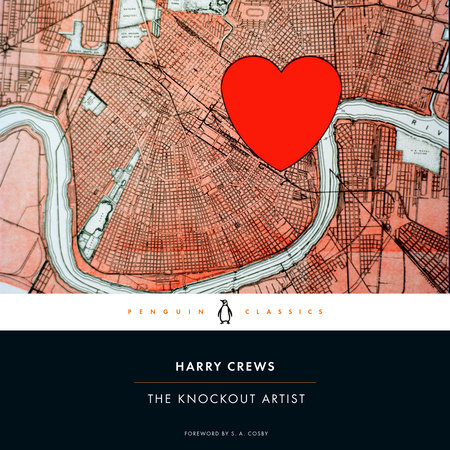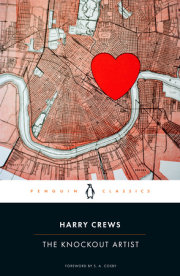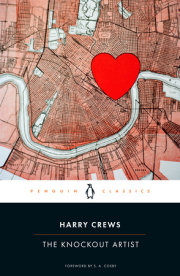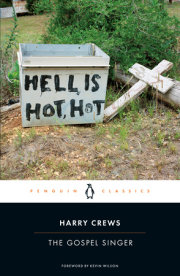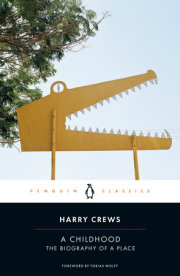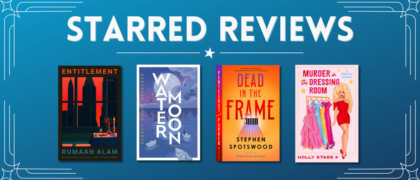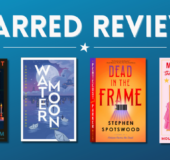Harry Crews was born in 1935 at the end of a dirt road in Alma, Bacon County, Georgia, a rural community near the Okefenokee Swamp. A protégé of Southern novelist Andrew Lytle, Crews published his first short story in the Sewanee Review in 1962. He published his first novel, The Gospel Singer, in 1968. Its publication earned Crews a new teaching job at the University of Florida and paved the way for the publication of seven more novels over the next eight years, including Naked in Garden Hills (1969); Car (1972); The Hawk Is Dying (1973), which was adapted into a film released in 2006; The Gypsy’s Curse (1974); and the widely acclaimed A Feast of Snakes (1976). Crews’s reputation as a bold and daring new voice in Southern writing grew during this time. In the 1970s, he wrote for popular magazines, including a monthly column for Esquire and essays for Playboy, and screenplays. In 1978, Crews’s memoir of his youth, A Childhood: The Biography of a Place, was published to enduring acclaim. Two compilations of his nonfiction works, Blood and Grits and Florida Frenzy, were issued in 1979 and 1982, respectively. A decade of drug and alcohol abuse and creative lapses ended in 1987 with the publication of his ninth novel, All We Need of Hell. Crews retired from the classroom after teaching for thirty years at the University of Florida in Gainesville. Crews, who died in 2012 at age seventy-six, was a prominent writer in the literary genre known as Dirty South or Grit Lit.Crews remade Southern gothic in his own rough-hewn image in eighteen memorable novels, including Karate Is a Thing of the Spirit (1971), The Knockout Artist (1988), and Body (1990), dozens of riveting nonfiction pieces, and one of the finest memoirs in American literature. In 2002, the University of Georgia Libraries inducted Harry Crews into the Georgia Writers Hall of Fame. S.A. Cosby (foreword) is the author of the New York Times bestseller Razorblade Tears and Blacktop Wasteland, which won the Los Angeles Times Book Prize, was a New York Times Notable Book, and was named a best book of the year by NPR, The Guardian, and Library Journal, among others. His latest novel is All The Sinners Bleed.

